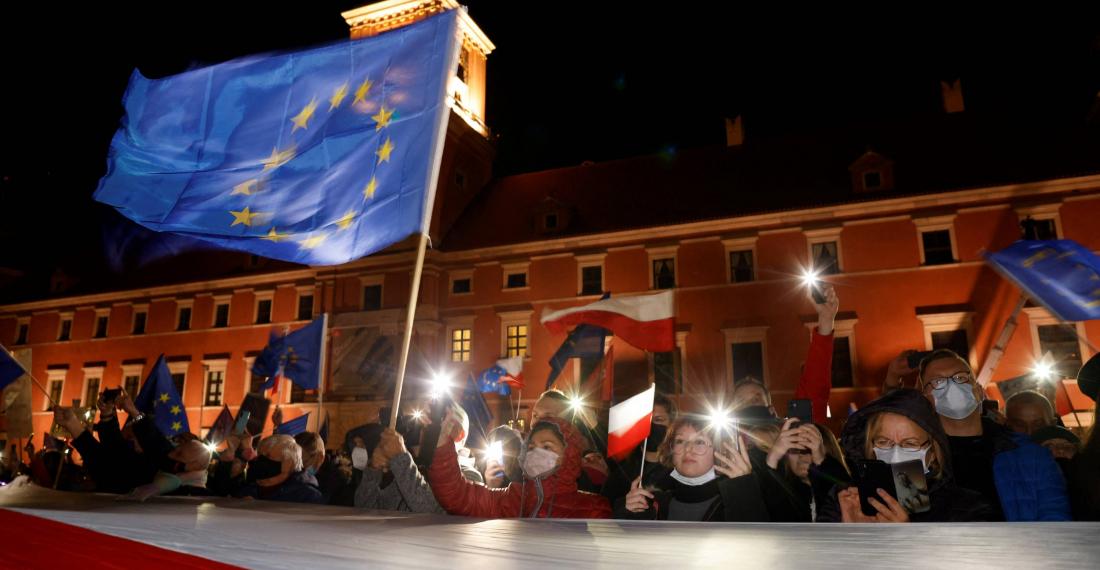Poland must pay Brussels a penalty of 1 million euros a day for refusing to dissolve a controversial Disciplinary Chamber for judges. On Wednesday (27 October), the Court of Justice of the European Union imposed the fine on the EU member for ignoring a court ruling.
In July, the European Court ruled that Poland must suspend the Disciplinary Chamber because it violates the independence of the judiciary and is contrary to EU law. The European Commission had asked the Court for the punitive measure because the government in Warsaw would not budge in its long-running conflict with Brussels. The politicised disciplinary chamber in Poland punishes critical judges financially or removes them from office.
The imposition of the fine comes at a critical moment. Last week, during a summit meeting, European government leaders discussed possible financial sanctions by Brussels against Poland, because of rule of law concerns.
The Polish government is furious and speaks of "abuse of power and blackmail". The Court is "acting beyond its powers", says Deputy Minister of Justice, Sebastian Kaleta. Poland can refuse to transfer the penalty payment to the European Commission, but that does not help the country. The amount can also be withheld from EU grants the country receives.







